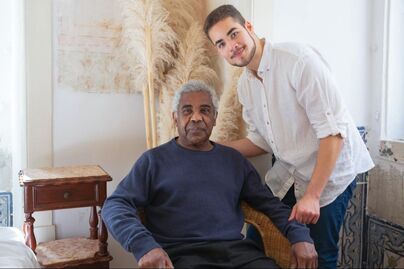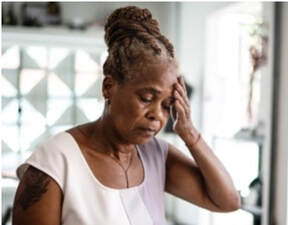 Photo by Kampus Production on Pexels.com Photo by Kampus Production on Pexels.com As our loved ones age, it can become necessary to find a caregiver to help them with daily tasks or medical needs. The process of choosing the right caregiver for an aging parent can be challenging, and it's important to carefully consider all the options before making a decision. One option is to hire a professional caregiver or home health aide. These individuals are trained and experienced in providing care for seniors, and they can provide valuable assistance with tasks such as bathing, dressing, and medication management. Professional caregivers can work full-time or part-time, depending on your needs and budget. Another option is to enlist the help of family members or friends. This can be a more cost-effective solution than hiring a professional caregiver, and it can provide your aging parent with the emotional support and companionship they need. However, it's important to ensure that family caregivers are compensated and have the necessary skills and abilities to provide safe and effective care. You may also want to consider an adult daycare program. These programs provide a safe and social environment for seniors during the day, while allowing their family members to work or attend to other responsibilities. Adult daycare programs offer a range of activities and services, including meals, medication management, and counseling services. Finally, you may want to consider assisted living facilities or nursing homes. These facilities provide 24-hour care and support for seniors who can no longer live independently. They offer a wide range of services and amenities, and can provide a safe and supportive environment for aging parents. Choosing a caregiver for an aging parent can be a difficult decision, but there are many options to consider. These include hiring a professional caregiver, enlisting the help of family members or friends, considering an adult daycare program, or looking into assisted living facilities or nursing homes. It's important to carefully evaluate each option and choose the one that best meets the needs of your aging parent and your family. Click the buttons below for resources and more information.
1 Comment
Caregivers are often advised to seek help to lessen the caregiving workload. For many individuals, the natural place to turn for such help is family. Family Caregiver Alliance’s Holding a Family Meeting fact sheet provides information on how to approach the subject, advice on creating an agenda, lists key points to consider discussing, and explains potential conflicts that may arise.
Here's a great article to read that gives eight tips on how to provide assistance — and help yourself, if you are experiencing caring for a loved one while retired or are anticipating this scenario in the near future.
This quick read, written by Richard Eisenberg, hits on some of those high points and gives a bit of healthy advice in the process. When the level of care needed by an ailing or elder person exceeds what can be provided at home, residential housing is often a next step. But how do you sort through the variety of options available and choose the correct level of care?
Family Caregiver Alliance's infographic “5 Types of Residential Care” reveals the five types of outside-the-home care found in most urban and suburban communities, and what to expect from each. Learn which options are best suited for an individual’s wants or needs, including:
Pain is a signal that something may be wrong in your body. You’ve probably been in pain at one time or another but found that it often goes away as the body heals or with treatment. However, many older people may have ongoing pain from health problems like arthritis, diabetes, shingles, or cancer.
A few things you can do to help manage your pain and feel better are:
The National Institute for Aging has released an informative booklet discussing different aspects of pain experienced by older adults. To view the booklet, click the button below. If you have older family members or loved ones, you may worry about their health as they age. Aging increases the risk of chronic diseases such as heart disease, type 2 diabetes, arthritis, cancer, and dementia. The good news is that adopting and maintaining a few key behaviors can help older adults live longer, healthier lives. As a family member, it’s important to encourage healthy lifestyle behaviors in your loved ones — it’s never too late to start!
For tips on healthy aging, click the button below. Deciding to become physically active can be one of the best things you can do for your health. Exercise and physical activity are not only great for your mental and physical health, but they can help keep you independent as you age.
To learn more, click the button below.  Exposure to social stress was associated with accelerated aging of the immune system, according to an NIA-funded study recently published in PNAS. The body’s immune system changes as people age, and there’s large variability in these changes. The study, led by researchers at UCLA, investigated whether social stressors added to immune system decline. To learn more, click the button below. The University of Washington Dementia Palliative Education Network and the WA State Dementia Action Collaborative have created a new free toolkit for family/friend care partners of people living with dementia.
The goal of this toolkit is to:
The toolkit includes:
For more information about the toolkit, click here. To view the flyer, click the button below. If you don’t see an aging parent or friend often, changes in their memory and function may seem dramatic. In contrast, a primary caregiver like a spouse might not notice such changes or realize that more help, medical treatment, or supervision is needed. Talk with your loved one and the primary caregiver about your concerns. Consider these conversation tips:
Rachel Nagler, 39, has worked part time since she was 22, but she will never be financially independent, according to her father. She is legally blind with a seizure disorder and mild cognitive impairment, the result of birth trauma.
For her parents, Sam and Debra Nagler of Concord, Mass., planning for retirement required them to focus on Rachel's future as well as their own. Caring for an older family member often requires teamwork. A primary caregiver — especially a parent — may be hesitant to ask for help or a break. A few ways you can help are:
Parkinson’s disease is a brain disorder that causes unintended or uncontrollable movements, such as shaking, stiffness, and difficulty with balance and coordination. Symptoms usually begin gradually and worsen over time. Common symptoms include:
While the exact cause of the disease remains unknown, many researchers believe that Parkinson’s results from a combination of genetic and environmental factors. There is no cure for Parkinson’s, but there are medicines, surgical treatments, and other therapies that can relieve some of the symptoms associated with the disease. To learn more about Parkinson's disease, click the button below. Some people perform incredible feats of strength and endurance well into their retirement years. The great news is: You don’t have to bench press 300 pounds or run a marathon to benefit from strength training.
NIA-funded researchers have been studying the effects of strength training for more than 40 years and have identified multiple ways it can benefit older adults, including maintaining muscle mass, improving mobility, and increasing the healthy years of life. Click below to learn more about the findings, along with tips for maintaining strength or becoming stronger as you age. I didn’t volunteer to become a caregiver to my elderly parents. Instead, I was slowly initiated into the role. It started by doing little things to help. Even though they were in their mid-eighties, they insisted on staying in Pensacola, Fla., their home of 50 years. Since I lived in Virginia, I called twice a week to check on them and shopped for them online. With each visit, I tried to notice things that would tell me if they were doing all right.
As a caregiver, you may worry about the health of older family members or other loved ones as they age. The good news is that adopting and maintaining a few key behaviors can help older adults live longer, healthier lives — and it’s never too late to start! Consider these tips to boost healthy habits:
Respite care provides short-term relief for primary caregivers. It can be arranged for just an afternoon or for several days or weeks. Care can be provided at home, in a healthcare facility, or at an adult day center.
It’s important to understand what is and isn’t a normal part of aging. Many people make assumptions about what it’s like to grow “old” and how older age will affect them. Research has shown that you can help preserve your health and mobility as you age by adopting or continuing healthy habits and lifestyle choices. A few common myths about aging are:
Adult day programs improve quality of life for seniors and caregivers
When your older adult can’t safely be alone all day on their own or if they feel lonely or isolated, consider enrolling them in an adult day program. Adult day programs can help an older adult remain at home longer – delaying the need to move to assisted living. They also allow seniors to socialize while getting the care they need. Day programs are also a great way for caregivers to get much-needed breaks to reduce stress and prevent burnout so your own health doesn’t significantly decline while caregiving. They can be especially helpful if you work full time outside of the home and your older adult needs affordable care during the day. We explain what adult day programs are, how they help seniors live at home longer, who would do well in these programs, how they help caregivers, and how much they cost. National Council on Aging Presents - National Falls Prevention Awareness Week
The National Council on Aging has sponsored National Falls Prevention Awareness week for the past 15 years. The goal of this campaign is to provide older adults with valuable information on how to reduce their risk of falling, and spread awareness about why this matters. NCOA's Falls Free CheckUp is an online screening tool that can serve as a first step for older adults to learn more about falls risk and steps to prevent falls and accidents. National Falls Prevention Awareness Week will be held on September 18-24, 2022. |
Caregiver
Whether in a medical professional setting or personal homes, Caregivers are caring and caring takes energy, wisdom and compassion. This Caregiver Blog is here to give you insight, encouragement and tools, not just to give care but to survive and thrive while doing it. Archives
July 2023
Categories
All
|
 RSS Feed
RSS Feed
